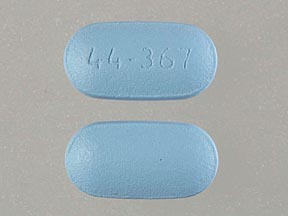
Sleep Aid (diphenhydramine) Coupons & Savings Card – Discount Prices from $10.27
My prescription
Edit
25MG, Sleep Aid (diphenhydramine) (30 Tablets)
Select pharmacy

Walgreens
$10.27
COUPON PRICESleep Aid (diphenhydramine) savings card
Show this card to your pharmacist
Walgreens
$10.27
BIN
ID
PCN
GRP
019876
LHA5A6FBA7
CHIPPO
LHX
Powered by
Price history for Sleep Aid (diphenhydramine) (generic)
30, 25MG
Average retail price for Sleep Aid (diphenhydramine)
Average SaveHealth price for Sleep Aid (diphenhydramine)
Our price history data is based on aggregated prescription data collected from participating pharmacies in America. Our prescription data updates daily to reflect the latest price changes. If you notice a missing data point, it means there wasn't sufficient data available to generate a monetary value for that date.
Sleep Aid (diphenhydramine) dosage forms
| Dosage | Quantity | Price from | Per unit |
|---|---|---|---|
| 25MG | 30 Tablets | $10.27 | $0.34 |
Sleep Aid (diphenhydramine) Side Effects
Common side effects:
- Headache
- Dizziness
- Nausea
Less common but important to monitor:
- Blurred vision
- Fatigue
Serious side effects:
- Chest pain
- Difficulty breathing
Sleep Aid (diphenhydramine) Interactions
Is diphenhydramine a good sleep aid?
Diphenhydramine is an antihistamine that is commonly used as a sleep aid due to its sedative properties. It can be effective for short-term use in helping individuals fall asleep. However, it may cause side effects such as dry mouth, dizziness, and drowsiness the next day. It is important to use it as directed and consult a healthcare professional if considering it for long-term use or if there are any underlying health conditions.
Which is better for sleep, diphenhydramine or doxylamine?
Both diphenhydramine and doxylamine are antihistamines commonly used as over-the-counter sleep aids. The effectiveness can vary from person to person. Diphenhydramine is more widely used and available in many sleep aid products. Doxylamine is often considered to be slightly more sedating for some individuals. However, both can cause next-day drowsiness and other side effects. It is advisable to consult with a healthcare provider to determine which option may be more suitable based on individual health needs and potential interactions with other medications.
What is a better sleep aid, diphenhydramine or melatonin?
The choice between diphenhydramine and melatonin as a sleep aid depends on the individual's specific needs and circumstances. Diphenhydramine is an antihistamine that can cause drowsiness and is often used for short-term relief of insomnia. Melatonin is a hormone that helps regulate the sleep-wake cycle and may be more suitable for those with circadian rhythm disorders or jet lag.For short-term use, diphenhydramine may be effective, but it can cause side effects such as dry mouth, dizziness, and next-day drowsiness. Melatonin is generally considered safer for long-term use with fewer side effects, but its effectiveness can vary from person to person.It is advisable for individuals to consult with a healthcare provider to determine which option is more appropriate for their specific situation.
Who should avoid using diphenhydramine?
Individuals who should avoid using diphenhydramine include those with a known allergy to the medication, as well as those with certain medical conditions such as glaucoma, enlarged prostate, or bladder obstruction. It is also advised to use caution or avoid use in elderly patients due to the increased risk of side effects such as confusion or dizziness. Pregnant or breastfeeding women should consult a healthcare provider before use. Additionally, individuals taking monoamine oxidase inhibitors (MAOIs) or other sedatives should avoid using diphenhydramine without medical advice.
Is diphenhydramine habit-forming?
Diphenhydramine is not considered habit-forming. However, some individuals may misuse it for its sedative effects. It is important to use diphenhydramine as directed by a healthcare professional to avoid potential misuse or adverse effects.
